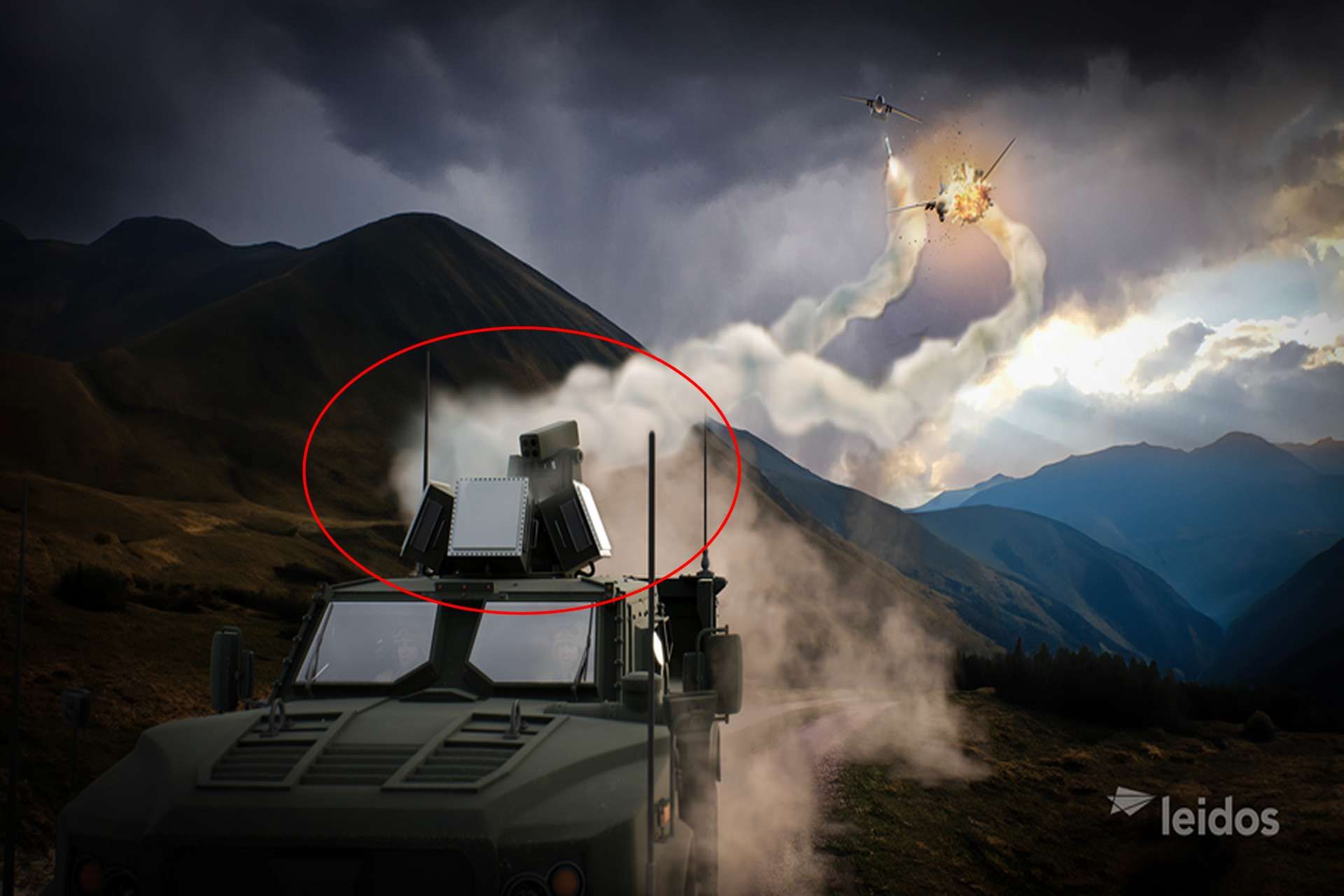Breaking News
US Company Leidos Launches AirShield Most Advanced Counter-Unmanned Aerial System.
On October 14, 2024, Leidos, one of the leading defense innovators listed in the Fortune 500, announced the launch of its counter-unmanned aerial system (C-UAS), now named AirShield™, incorporating cutting-edge technological advancements. Designed to address the growing threats posed by unmanned aerial vehicles (UAVs), AirShield stands out for its advanced capabilities and versatility. This system integrates both kinetic and non-kinetic effectors, providing robust and mobile air defense. Leidos emphasizes that successful testing and the unique performance of AirShield position it as an essential solution in the market, particularly in demanding and dynamic operational environments.
Follow Army Recognition on Google News at this link

Leidos AirShield Counter-Unmanned Aerial System (Picture source: Leidos)
The architecture of AirShield is based on a multi-layered structure capable of operating in both fixed and mobile positions, covering all critical defense stages: detection, tracking, classification, identification, prioritization, and neutralization of threats. This comprehensive kill chain allows for seamless integration into existing air defense systems. “The threat posed by drones is evolving rapidly,” said Derrick Birdsell, AirShield program manager at Leidos. “AirShield is designed to adapt to current systems and keep pace with technological advancements while allowing for the addition of effectors for various types of customers.”
Once identified, the system prioritizes the threat and activates the appropriate effectors, which can include kinetic weapons like missiles or non-kinetic effectors such as lasers or electronic jamming systems. This rapid and tailored response not only neutralizes the UAV but also incorporates cybersecurity strategies to counter any attempts to disrupt AirShield’s systems, ensuring comprehensive protection against emerging threats.
AirShield notably features the CUGAR (Co-axial Unmanned Guided Autonomous Rotorcraft) effector, showcased during last year's MFIX demonstration. Leidos plans to enhance this effector by integrating the APKWS missile system, thereby increasing its effectiveness against threats. AirShield is also designed to easily accommodate high-energy lasers, turret-mounted guns, and high-powered microwave systems, offering unprecedented flexibility against a wide variety of threats.
As part of its advancements in artificial intelligence (AI), Leidos is integrating innovative technologies to optimally pair weapons with threats, a task previously managed by rule-based algorithms. The company is also exploring new applications of AI and machine learning to further enhance AirShield’s capabilities while ensuring resilience against cyber threats through integrated offensive and defensive cybersecurity strategies.
This project continues Leidos' work on C-UAS systems, initiated with the Defense Advanced Research Projects Agency (DARPA) Mobile Force Protection (MFP) program. Following a successful demonstration, the program was transferred to the U.S. Army Combat Capabilities Development Command (DEVCOM) Aviation and Missile Center. Leidos plans to launch AirShield production in 2025, with an initial deployment anticipated for the U.S. Southern Command, marking a significant advancement for this innovative technology.
The development of the AirShield system by Leidos is crucial due to the rapidly evolving threats posed by unmanned aerial systems (UAVs). As the use of drones for military operations and hostile acts increases, the need for an effective and adaptable defense response becomes essential. AirShield not only protects military and civilian installations against potential drone incursions but also provides an integrated solution capable of adapting to new technologies and adversarial tactics. This positions Leidos as a leader in a growing market where air security is a top priority.
Furthermore, with the intensification of geopolitical conflicts and the rise of asymmetric threats, nations are seeking ways to safeguard their critical infrastructure and armed forces. AirShield, as a versatile air defense system, offers real-time detection, tracking, and neutralization capabilities against threats, which is vital for maintaining operational superiority. By integrating advanced technologies, such as artificial intelligence and various effectors, Leidos positions its system as an essential response to a complex security environment, thereby contributing to the protection of its clients' strategic interests.
Several armed forces have expressed interest in the AirShield system due to its advanced capabilities in countering unmanned aerial threats. The U.S. Southern Command is set to be among the first to deploy the system, reflecting a strong commitment to enhancing air defense against UAVs. Additionally, other branches of the U.S. military may also consider integrating AirShield into their operations, given the increasing recognition of drone threats across various combat scenarios. Internationally, allied nations with emerging UAV concerns, particularly those involved in coalition operations, have shown interest in acquiring such advanced C-UAS systems to bolster their air defense capabilities. However, specific details about other interested foreign military forces may not be publicly available at this time.


























